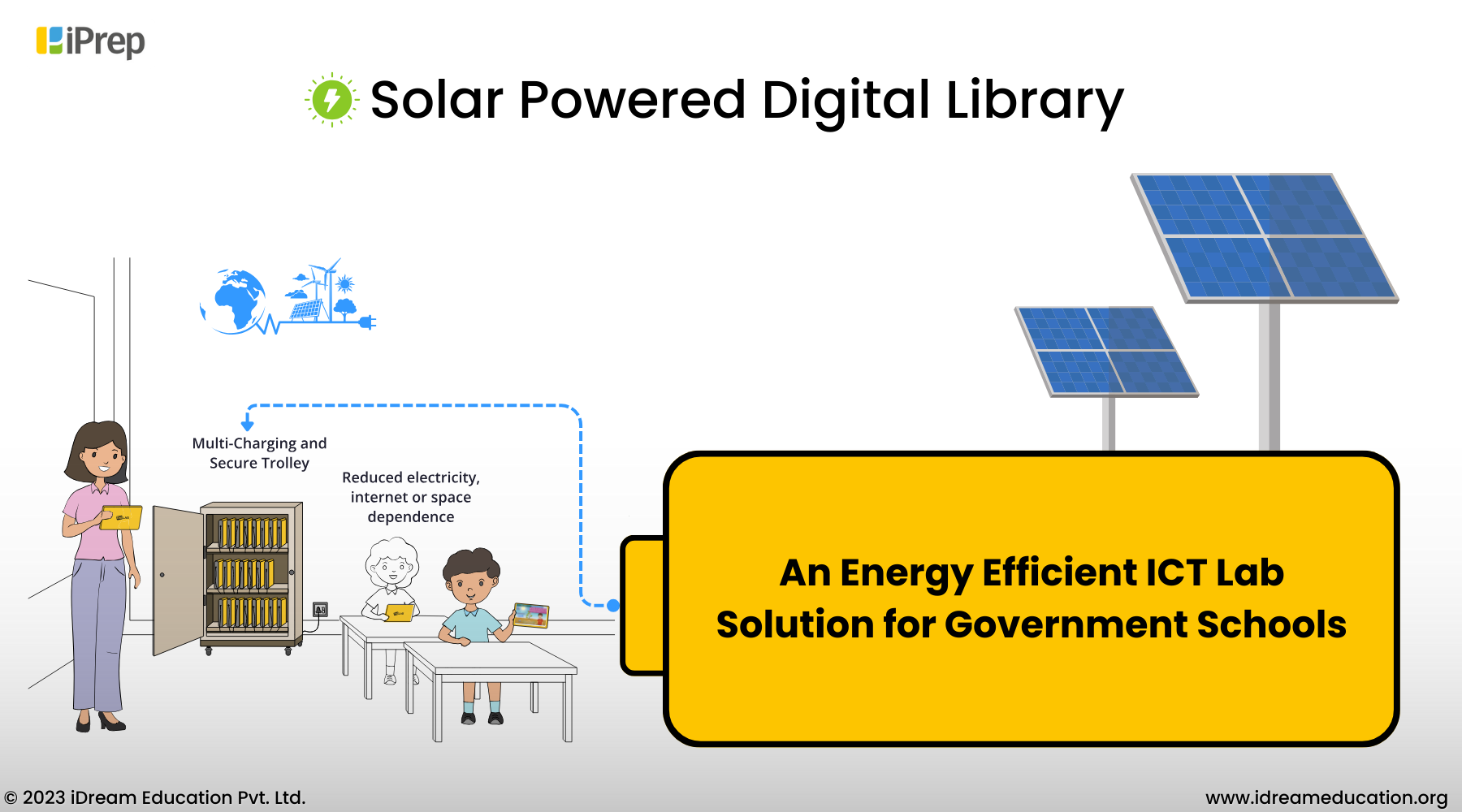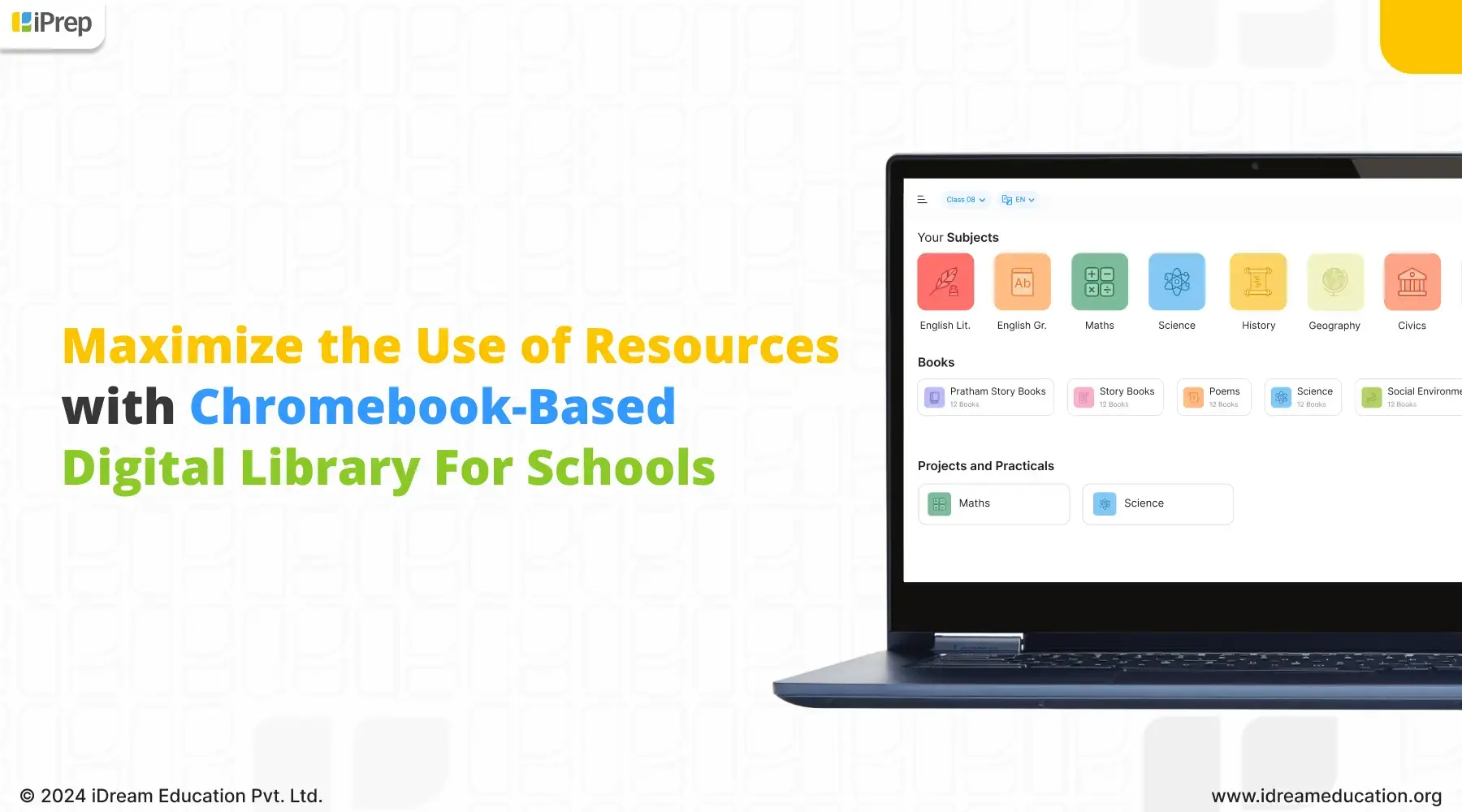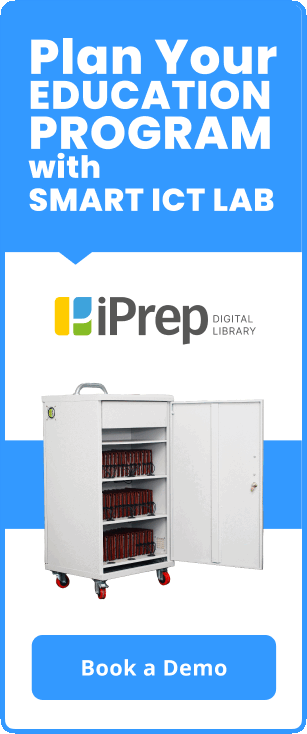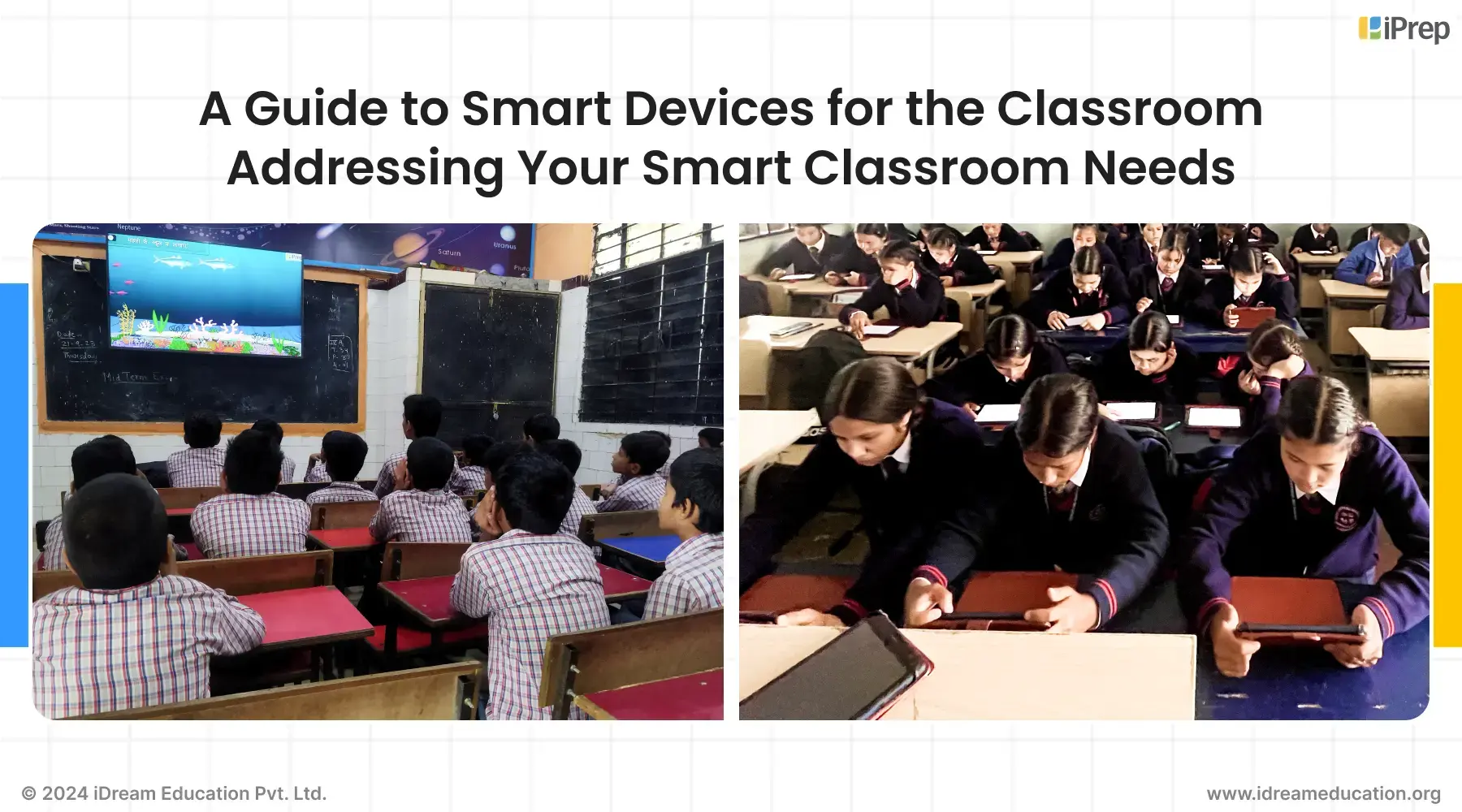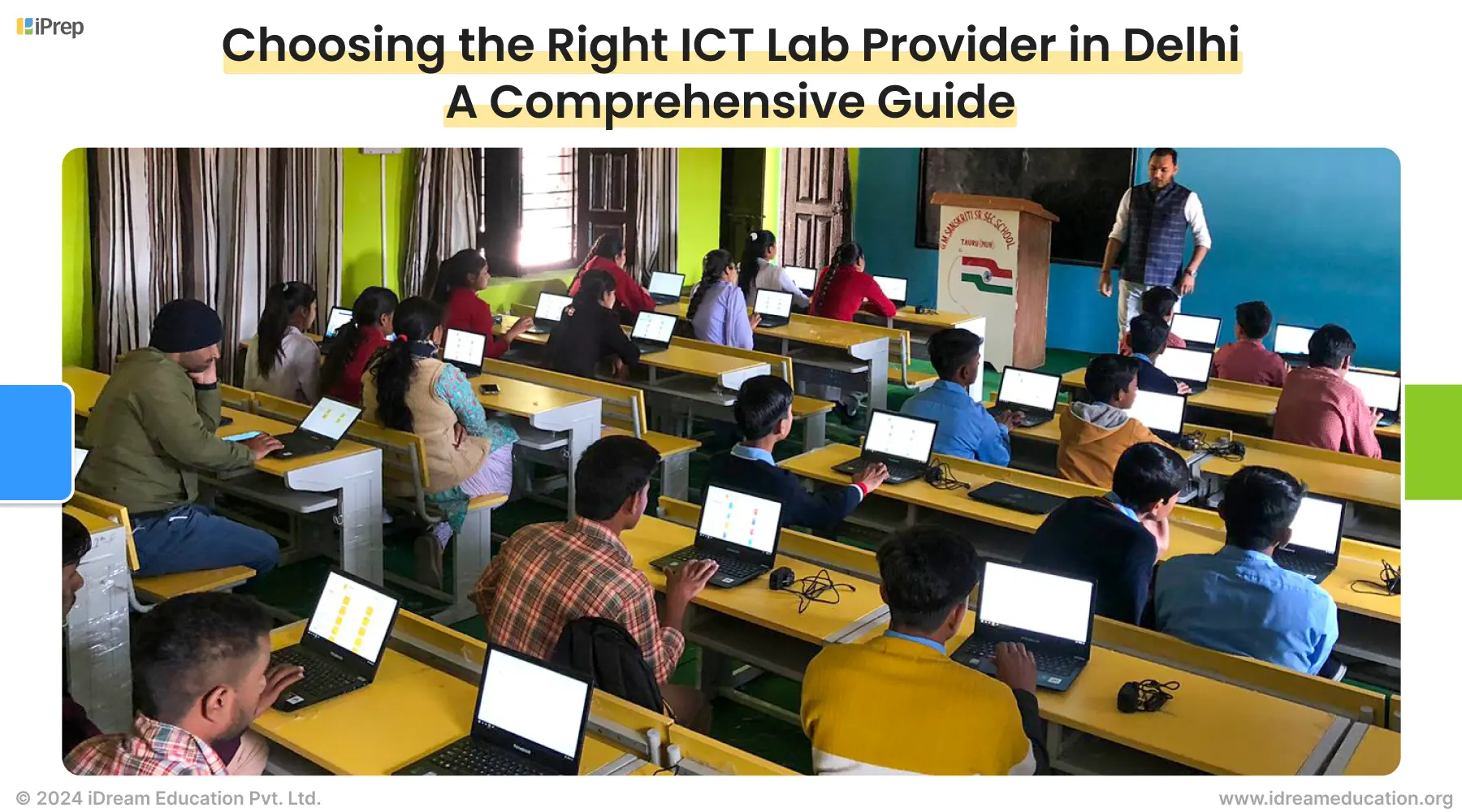The Power of ICT in Teaching and Learning: 7 Remarkable Benefits
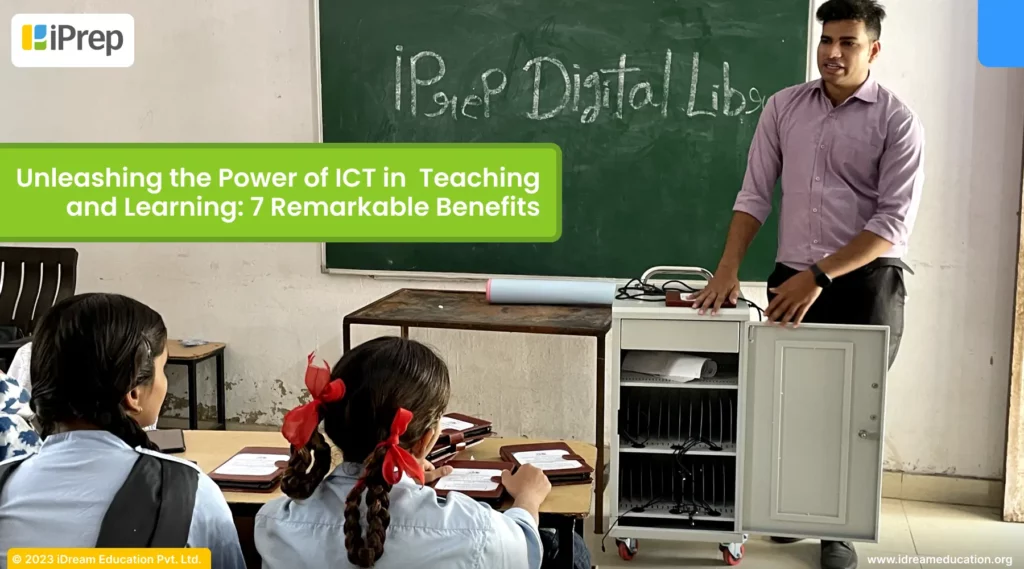
As the world accelerates into the digital age, education is also undergoing a fundamental transformation. Information and Communication Technology (ICT) is central to this revolution, which is reshaping the way we teach and learn. In this article, we will discuss the astounding impact of ICT In Teaching and Learning, and education overall, revealing seven game-changing benefits that are changing classrooms around the world.
ICT in Teaching and Learning reshaping the educational landscape by eliminating geographical barriers, personalizing education, enhancing knowledge retention, and preparing students for the digital age. In addition, we will introduce you to the iPrep Digital Library, a game-changer in the world of ICT in education. Join us as we explore the future of teaching and learning in a world that is becoming increasingly digital.
About ICT In Teaching And Learning
Information and Communication Technology (ICT) has emerged as a powerful force for enhancing teaching and learning in the traditional educational environment. ICT in teaching and learning refers to the use of technology, such as notebooks (such as Chromebooks and Primebooks), and tablets with learning applications, with or without the Internet, to improve the educational experience for both teachers and students.
It involves the implementation of various software applications and methodologies designed to enhance the quality and effectiveness of education. This integration seeks to streamline instructional practices, making them more accessible and effective for all stakeholders, going beyond mere hardware and software.
Extensive research supports the incorporation of ICT into teaching and learning, demonstrating its positive impact on student engagement, achievement, and overall learning outcomes. Simply introducing technology into the classroom is not sufficient; educators must utilize it to create dynamic and interactive learning environments. ICT provides educators with tools that facilitate personalized learning experiences, adapt to the unique needs of each student, and enhance knowledge retention. In addition, it improves the transparency of attendance and grading processes, facilitating communication among teachers, students, and parents. This comprehensive approach generates a more engaging, effective, and student-centered learning environment that prepares students for success in the digital age.
What is ICT in the context of schools?
In the educational context, Information and Communication Technology (ICT) pertains to the utilization of computers, tablets, and the Internet to facilitate the teaching and learning processes for both educators and students. ICT encompasses the deployment of software applications and methodologies aimed at enhancing the quality and efficiency of education. Essentially, ICT in schools endeavors to streamline instructional practices, rendering them more accessible and effective for all stakeholders involved.
Extensive research supports the integration of ICT in teaching and learning processes. It highlights its positive impact on student engagement, achievement, and overall learning outcomes. Let us have a look at one of them in the below section.
Government research on ICT
Government research envisions the National Mission in Education through ICT in teaching and learning as a highly beneficial future initiative to enhance the educational experience for all learners in higher education institutions, providing the flexibility of access from any location.
During the XI five-year plan period, it was anticipated that ICT would play a pivotal role in increasing the Gross Enrollment Ratio (GER) in higher education by 5 percent.
The comprehensive principles of the education policy are access, equity, and quality.
These principles can be effectively served by ensuring connectivity to all schools, colleges, and institutions, as well as by providing students and learners with low-cost and easily accessible resources. The National Mission on Education through ICT (NMEICT) comprehensively addresses all three of these essential elements.
One of the primary objectives of the NMEICT is to bridge the digital divide, which refers to the disparity in proficiency in using computing devices for educational purposes between rural and urban teachers/learners. Additionally, ICT in teaching and learning plays a crucial role in empowering those who have yet to benefit from the digital revolution. The NMEICT also places a strong emphasis on adopting appropriate methods for e-learning and offers facilities for conducting experiments through virtual laboratories and online testing. This initiative is instrumental in training and empowering teachers to effectively utilize these new methods of teaching and learning, among other benefits. For more details, click here: www.nmeict.ac.in
Now let us talk about what benefits ICT in teaching and learning offers in the next section.
Benefits of ICT in teaching and learning
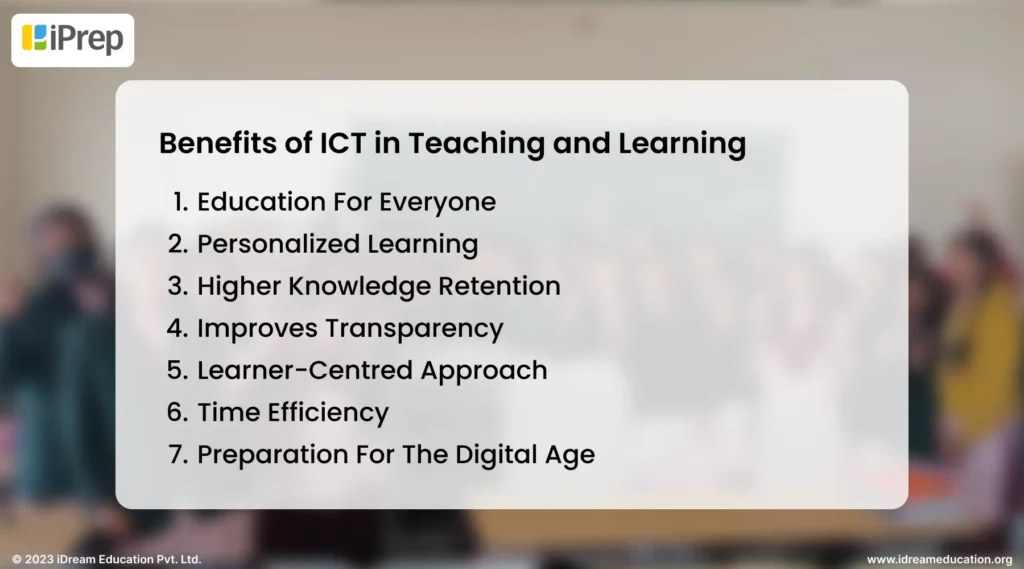
Benefit 1: Education for Everyone
Education for everyone is undeniably one of the most significant benefits of ICT in teaching and learning. It helps break down geographical barriers, providing access to quality education for students regardless of their location, while all the resources are available in the classroom room students can also access them outside school while sitting at home or enjoying a vacation with family. This especially benefits students who prefer learning at their own pace. Such students can go over the lesson as many times as they want to understand the topic thoroughly. Virtual classrooms and digital resources ensure that education is no longer confined to traditional ways of teaching and learning. This inclusivity is particularly crucial for remote or underserved areas, changing access to knowledge.
iPrep is an innovative educational platform designed to cater to a diverse range of learners, ensuring education is accessible to everyone. It offers a variety of content formats including text, videos, interactive simulations, and more. iPrep provides content in multiple languages, breaking down language barriers and this online platform enables students to learn from anywhere with an internet connection making education accessible to a global audience.
Benefit 2: Personalized Learning
One of the most significant benefits of ICT in teaching and learning is Personalized learning. One-size-fits-all approaches are no longer that effective in education. ICT(Information communication technology) enables personalized learning experiences to adapt to individual student needs, preferences, and pace of learning. Personalized learning helps ensure every student easily reaches their full potential.
iPrep’s approach to personalized learning leverages technology to create a dynamic and adaptive learning environment. It tailors content, feedback, and resources to the specific needs of each student, and maximizes their potential for academic success.
Benefit 3: Higher Knowledge Retention
Higher knowledge retention stands among the most crucial benefits of ICT in teaching and learning. Visual learning is seen to be more effective for students than regular chalk and talk. The education sector has seen that integrating technology in studies, such as videos, simulations, interactive activities, and practicals significantly improves knowledge retention which is a great way to increase the teaching capacities of teachers. This is because our brains process and retain images and videos faster as compared to texts. ICT in teaching and learning makes learning more immersive and memorable which ultimately leads to a deeper understanding and long-term retention of information.
iPrep employs a visual approach on its platform to enhance the memorization of topics over an extended period, minimizing any unnecessary difficulties. iPrep achieves this by offering educational videos, simulations, and interactive activities for each subject. These resources significantly contribute to better knowledge retention.
Benefit 4: Improves Transparency
Transparency is another highly advantageous benefit of ICT in teaching and learning. It helps to maintain a transparent attendance and grading process. The data can be shared with schools, teachers, students, and their parents. Data is also stored in ICT that can help serve as proof in case of student absenteeism. This eliminates uncomfortable questions and accusations, as all actions are based on proof.ICT tools facilitate seamless communication between teachers, students, and parents by making them connect digitally. These digital connections between parents and teachers enhance transparency as the teacher can regularly provide the child feedback to their parents directly without even waiting for the traditional parent-teacher meeting that takes place quarterly.
Digital platforms and learning management systems provide real-time access to grades, assignments, and progress reports. This transparency fosters a collaborative learning environment, where stakeholders work together to support the student’s educational journey.
iPrep is a platform where students can access a wide range of learning materials, including textbooks, multimedia resources, and interactive simulations. This ensures that all students have equal access to the same resources, promoting transparency in content delivery. iPrep allows for prompt feedback on assignments and assessments. This immediate response fosters transparency by providing students with a clear understanding of their strengths and areas for improvement.
Benefit 5: Learner-Centered Approach
A learner-centered approach puts students at the forefront which is a major benefit of ICT in teaching and learning, this approach encourages active participation, collaboration, and critical thinking empowering students to take ownership of their learning journey. It also prioritizes the student’s individual needs and interests.
Leveraging Information and Communication Technology (ICT), iPrep provides a good example of how education can be designed around a learner-centered approach. iPrep achieves this by offering personalized learning and a wide variety of rich multimedia resources such as e-books, interactive simulations, and videos. Additionally, it enables immediate feedback on assignments and assessments. This timely input helps learners understand their strengths and areas for improvement, enabling them to take ownership of their learning journey.
Overall, a learner-centered approach with ICT in teaching and learning fosters a more engaging, effective, and student-focused educational experience.
Benefit 6: Time Efficiency
ICT in teaching and learning brings about significant time efficiency which is another benefit of ICT in education. It allows for quick access to a vast array of resources, reducing the time spent on doing manual research. Communication is sped up, enabling instant feedback and collaboration. Additionally, digital tools streamline administrative tasks, such as grading and record-keeping. This efficiency affords educators more time for personalized instruction and creative lesson planning, ultimately enhancing the quality of education. For students, it means faster access to information, interactive learning, and quicker feedback, optimizing their learning experience.
iPrep allows for real-time assessment and feedback. Students receive instant input on their performance, enabling them to address misconceptions or gaps in knowledge promptly. iPrep reduces the time spent on unproductive study paths and provides students with 24/7 access to rich offline learning content. This platform is loaded with offline content, which helps in reducing the need for hours of manual research.
Benefit 7: Preparation for the Digital Age
In today’s era which is technology dominant, equipping students with ICT skills is a crucial benefit of ICT. Integrating technology or ICT in teaching and learning increases teachers’ and students’ digital literacy, which is a fundamental requirement for their future or current careers. They learn not only how to use tools but also how to adapt to and thrive in an ever-evolving technological landscape.
iPrep stands at the forefront of preparing students for the digital age through its strategic integration of ICT in teaching and learning. Through interactive online platforms, personalized learning experiences, and collaborative projects, students gain hands-on experience with the technologies that define the modern world. iPrep not only equips students with technical proficiency but also fosters adaptability, creativity, and the ability to navigate a rapidly evolving digital landscape.
Introducing iPrep Digital Library a Perfect Fit for ICT in Teaching and Learning
iPrep Digital Library is designed as an easy-to-use and maintain Smart ICT Lab on Tablets, the iPrep Digital Libraries provide a comprehensive hub of knowledge. It replaces traditional classrooms, libraries, and computer labs with immersive learning environments. You can call it the lab of all Learning labs viz. English Lab, Science Lab, Math Lab & Smart ICT Lab. Let’s take a closer look at the benefits of the iPrep Digital Libraries.
No Infrastructure Barriers
The iPrep digital library gives a distinct advantage over traditional computer labs in that it is entirely free from infrastructural constraints. This is due to the inclusion of a trolley accompanying the digital library, facilitating seamless mobility between rooms. Remarkably, this trolley can accommodate either 20 or 30 tablets, thereby significantly saving on space when compared to the spatial requirements of conventional computer laboratories. Furthermore, the iPrep digital library affords the flexibility to be employed in open environments, affording educators the adaptability to conduct classes even in the absence of a dedicated room.
Reduced to No Electricity Dependency
In government schools and rural areas, where access to electricity is only sometimes assured, the implementation of smart ICT labs proves instrumental in mitigating the challenge of consistent power supply. Notably, the iPrep digital library addresses this concern effectively by incorporating tablets with a charging cycle of 2-3 hours, subsequently enabling their use throughout the day. Furthermore, a pivotal component of the iPrep digital library is a trolley designed to charge all tablets concurrently. These combined features substantially reduce the dependency on a steady electricity source.
Makes Reporting Easy
The iPrep Digital Library comes with an advanced automated progress tracking system, providing real-time updates in the form of detailed reports. These reports offer a comprehensive overview of a student’s engagement with the platform, showcasing metrics such as the number of videos viewed, the duration of viewing, the literature consumed, and proficiency attained in practice exercises. This invaluable tool greatly facilitates educators in understanding the current status of each student’s academic journey.
Moreover, this reporting mechanism extends to the school’s principal, who can conveniently access this information through the centralized reporting dashboard. This feature not only promotes transparency but also enables administrative leadership to stay informed about individual student progress, thereby contributing to a more informed and responsive educational environment.
Bilingual Learning
The iPrep Digital Library has a bilingual feature, allowing both students and teachers to select their preferred language for instruction. This flexible option acknowledges the diverse linguistic backgrounds of learners. For some students, comprehending lessons in their mother tongue, such as Hindi, proves to be more effective for learning. This linguistic adaptation enhances comprehension and aids in the retention of concepts over an extended period. It enables students to grasp complex subject matter with greater ease, particularly within the bilingual context.
Addressing Learning Gaps
The iPrep Digital Library offers a unique capability to explain foundational concepts, even at an advanced level. This happens due to the feature that allows students to switch between classes. For instance, if a student encounters difficulty in comprehending a specific chapter in 12th-grade mathematics, they have the option to transition to the 11th-grade curriculum. This enables them to reinforce their understanding of fundamental concepts, which in turn, serves as a solid groundwork for comprehending the 12th-grade material effectively. This adaptability ensures that students possess a strong grasp of the underlying principles, regardless of the academic level they currently engage
Conclusion
The integration of ICT in teaching and learning stands as a pivotal force in reshaping the way we teach and learn. This shift brings with it a lot of benefits that are changing classrooms worldwide.
From breaking down geographical barriers to providing personalized learning experiences, ICT in teaching and learning is changing education, ensuring that every student has access to quality resources and instruction. The iPrep Digital Library stands as a beacon of this transformative approach, offering a comprehensive and adaptable platform that empowers both educators and students.
The way Forward
With iPrep, education rises above traditional boundaries, offering a wealth of resources that cater to diverse learning needs. It embraces a learner-centered approach, putting students at the forefront of their educational journey, and encouraging critical thinking, collaboration, and active participation. This not only prepares students for the digital age but also equips them with the skills and adaptability needed to thrive in an ever-evolving technological landscape.
Furthermore, iPrep addresses practical concerns, such as infrastructure and electricity dependency, ensuring that even in resource-constrained environments, access to quality education remains uninterrupted. Its reporting system provides invaluable insights into student progress, fostering transparency and informed decision-making for educators and administrators alike.
Incorporating bilingual capabilities and allowing for the bridging of learning gaps, the iPrep Digital Library empowers students to learn in a way that best suits their individual needs and preferences. This adaptability ensures a strong foundation in fundamental concepts, setting the stage for more advanced learning.
In conclusion, the integration of ICT in teaching and learning, exemplified by the iPrep Digital Library, is changing the learning experience. It not only equips students with essential skills for the digital age but also fosters a dynamic, inclusive, and learner-centered environment. As we continue on this technological trajectory, platforms like iPrep pave the way for a future of education that is accessible, adaptable, and empowering for all.


